What Rebuts Democracy in Plato’s Arguments?
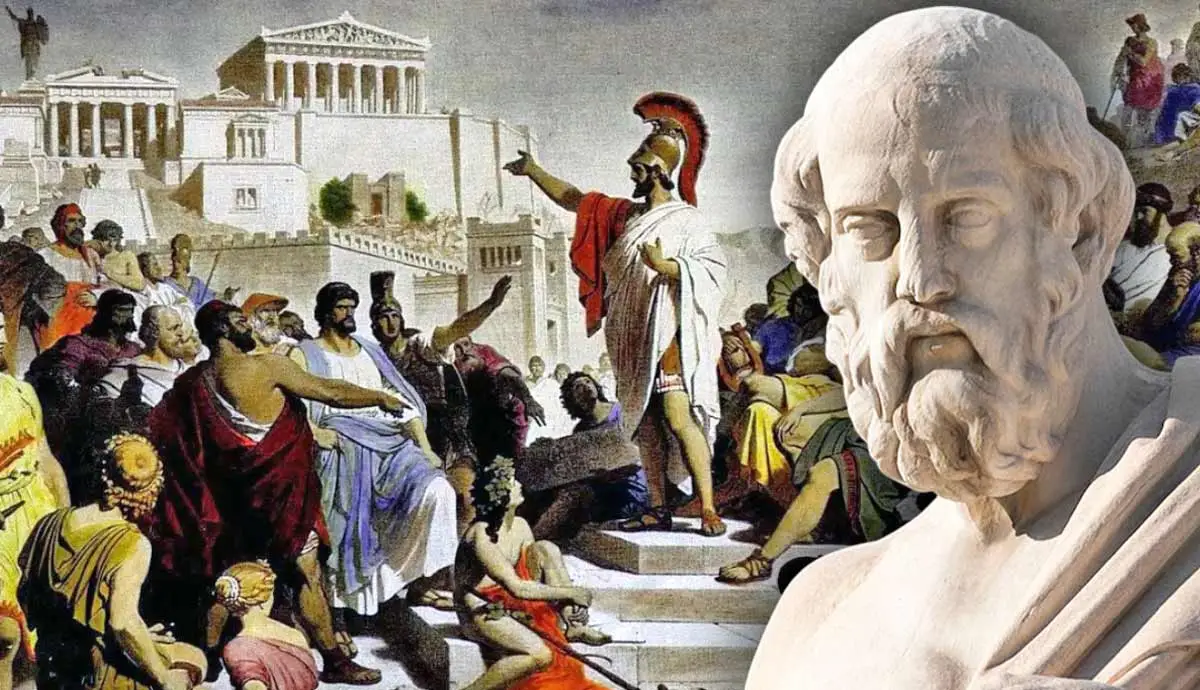
The great philosopher was famously skeptical of the rule of the people. What are Plato’s arguments against democracy?
Plato is renowned for his writings on various subjects, including ethics, knowledge, and politics. In his central work, The Republic, Plato delves into the ideal state and its governance. A part of his argument is a critique of democratic government, a form of rule that he viewed as inherently flawed and unsustainable. To understand why Plato had such reservations about democracy, we must explore his classification of government types, his critique of democracy as a regime, and the analogy he employed to argue that ruling is a skill best left to experts.
Plato’s Classification of Five Regimes
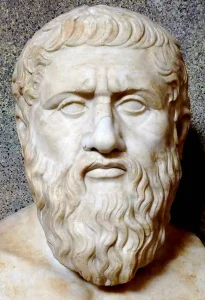
Bust of Plato. via Wikimedia Commons
In Books VIII and IX, Plato presents a classification of government types, with aristocracy ruled by philosophers being the most ideal and resembling the perfect city-state. Alongside aristocracy, Plato identifies four other forms of government: timocracy, oligarchy, democracy, and tyranny. Timocracy refers to the rule of a few individuals who prioritize honor and glory as the highest virtues. Oligarchy involves the rule of a few where wealth serves as the primary criterion for attaining power. Democracy represents majority rule, where freedom and equality hold paramount importance in political positions. Lastly, tyranny represents an entirely unjust form of rule where the whims of a single ruler become law for the subjects.
Plato’s classification suggests a causal sequence where the regimes appear to arise from one another, with a descending order from a value standpoint. It appears as if the ideal regime succumbs to timarchy, which then leads to the emergence of oligarchy and so forth. Timarchy and oligarchy are considered less just than aristocracy, while democracy and tyranny are generally regarded as unjust regimes, with tyranny being the worst form.
Plato’s classification of government types is based on the notion that there is only one good regime and that all others are deviations from that absolute ideal. Aristotle would later criticize Plato’s classification, deeming it insufficiently comprehensive and overly abstract. Aristotle advocated for value realism, asserting the existence of objectively superior regimes while recognizing that practical social realities dictate the feasible forms of government. Nevertheless, Plato’s typology is particularly interesting due to its reflection of his views on democracy.
Is Democracy Unsustainable?
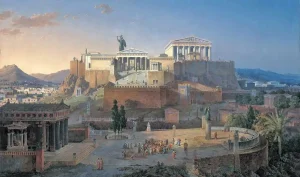
Acropolis and Areopagus in Athens. Leo von Klenze, 1846 CE, via Wikimedia Commons
According to Plato, the emergence of democracy from oligarchy occurs when the poorer class revolts against the wealthy minority. This revolt is typically led by someone who betrays the oligarchic class but possesses the talent to rule and manipulate people, often through persuasive speeches. This individual is known as a demagogue. With a demagogue at the helm, the masses seize power, often through violence, killing some, expelling others, and forcing the remainder to coexist. In this regime, everyone is granted equal rights to everything — it is a regime in which the government is chosen by lot. Naturally, Plato’s description is primarily inspired by the Athenian democracy of his time, and he highlights everything that he considered to be problematic with it.
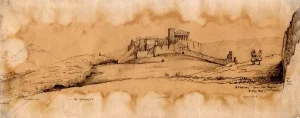
The Areopagus, the hill on which the Council of the Areopagus convened in Athens, by Thomas Hayter Lewis, 1842 CE, via the British Museum, London
Democracy, as Plato describes it, is characterized by equality and freedom, but also the right to publicly say whatever comes to one’s mind, as well as the right to lead a life as one wants. Democracy fosters a wide array of lifestyles, and because of that, every other form of government can be found in democracy to a certain extent. This occurs because individuals in a democratic society are not guided by an understanding of what is truly good. Instead, they succumb to the notion that all pleasures hold equal value. Consequently, they lack the ability to discipline their lives and mindlessly pursue the satisfaction of every desire and passion that arises within them or is propagated by demagogues as the common good. Rather than leading to knowledge, this pursuit of freedom distances individuals from wisdom.
Plato argues that democracy lacks restrictions, making it inferior to oligarchy, where certain limitations exist. In a democracy, no one is compelled to rule or be politically engaged if they choose not to be. Freedom is paramount in this regime: even during times of war, a democratic citizen can peacefully abstain from participating in the defense of the city. Additionally, the relationships between ruler and subjects, parents and children, and teachers and students are undefined and often interchangeable in a democratic society. Plato asserts that democracy is always susceptible to the danger of a demagogue who rises to power by pleasing the crowd and, in doing so, commits terrible acts of immorality and depravity. This ultimately leads to the complete collapse of the democratic order, which results in tyranny. Tyrannies arise when powerful groups or individuals separate themselves from the democratic regime and become uncontrollable forces.
The Overview of Plato’s Argument Against Democracy
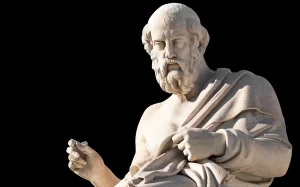
The statue of Plato in the gardens of the Academy of Athens, by Leonidas Drosis, 19th century CE, via IStock
Plato’s critique of democracy finds its foundation at an earlier point in the Republic, specifically in Book VI. The principle of specialization, which Plato introduces when constructing the ideal city in Book II, contributes to his thesis that philosophers are best suited to rule. In this ideal city, each citizen is assigned a specific role, one that aligns with their abilities and for which they have received training. Whether they are farmers, artisans, doctors, cooks, or soldiers, they are expected to contribute to the community’s well-being solely in their designated capacity. From this foundational principle, an implicit conclusion arises: ordinary workers, constituting the electorate in any democracy, should refrain from involvement in political decision-making. Instead, political rule should be reserved for those who possess the necessary abilities and education that enable them to excel in governance.
Plato’s argument can be summarized as follows: Ruling is a skill, and it is rational to entrust the exercise of skills to experts. In a democracy, power lies with the people, who, by definition, are not experts in ruling. Consequently, Plato concludes that democracy is inherently irrational.
Plato’s Republic delves into the question of how one should lead their life, which is essentially an ethical inquiry concerning individual behavior and existence. However, from the very beginning of the dialogue, it becomes evident that this extends beyond personal conduct and touches upon fairness and justice in the state’s organization. According to Plato, ethical and political issues are interconnected, with the study of governance being an extension of understanding virtuous living.
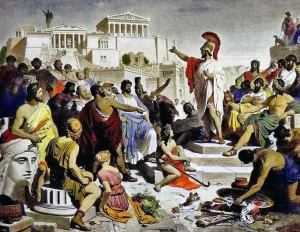
Pericles’ Funeral Oration, by Philipp Foltz, c. 1852, via Harper College
Throughout the dialogue, Plato defends the analogy between the state and the human soul. He suggests that by envisioning a just and well-structured state, one can gain insight into the nature of justice in an individual’s life. The state is like a magnified version of the soul, allowing us to apply the understanding of justice on a grander scale to an individual level. A properly functioning state, just like a healthy soul, is one where the different parts are perfectly balanced and work in harmony with each other.
Plato emphasizes the internal unity of both the political state and an individual’s personality. Just as the state comprises various parts, so does the human soul. A well-ordered state and a morally upright individual share the trait of harmonious components. Such harmony leads to a healthy and just society, which should be the ultimate aspiration of both individual and collective actions.
Plato’s Analogy: Ruling as a Skill
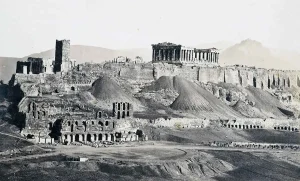
The Athenian Acropolis, by D. Constantidis, c. 1880-1890 CE, via Royal Collection Trust
Plato’s analysis is deeply rooted in the notion of division of labor and the principle of specialization. He concludes that fairness in the state can be achieved when each person fulfills their role according to their natural talents, education, and training. This principle of specialization dictates that members of each social class should focus solely on their designated work and refrain from interfering with the tasks of other classes. The ruling, he claims, should be left to those who possess the knowledge of good — the philosophers.
Thus, Plato’s argument against democracy is ultimately built upon an analogy. He draws attention to the various social roles that contribute to the common good, such as farming, cooking, and house-building. All jobs that serve the common good require specific training and preparation. Similarly, political tasks like selecting officers, participating in the assembly, and presiding over courtroom cases also contribute to the common good. People in these positions require specialized training and expertise to excel at their respective tasks. Therefore, those who acquire the necessary political qualifications are the most likely to perform these tasks effectively, or at least better than others. Consequently, Plato asserts that individuals should refrain from participating in politics unless they have undergone the required training and acquired the relevant political skills.
The Relevance of Plato’s Argument
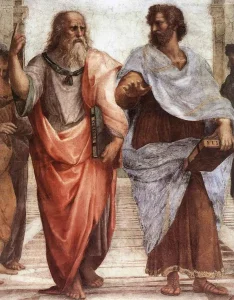
Plato and Aristotle, Crop of the School of Athens, by Raphael, 1509–1511 CE, via Wikimedia Commons
Despite the fact that Plato wrote with ancient Athenian democracy in mind, the core of his argument can be applied to modern-day democracies as well. Today, there are still those who believe that crowds of people lack political skills and that politics should be left to a select few. In response to Plato’s anti-democratic critique of rule by the many, a defender of democracy might raise an argument put forth by Aristotle in Politics, which has also been revisited in modern times. The essence of this response lies in the belief that a large group can collectively possess greater wisdom than a small one. This notion is analogous to how a group of less wealthy individuals, when united, can collectively become richer than a single wealthy person. By pooling together their limited knowledge, the group forms a vast body of information from smaller bits, yielding a potentially wiser and more informed decision-making process.
A more radical response to Plato’s critique of democracy can be found among democrats who argue in favor of granting political power to individuals, even when they may not be highly qualified to wield it effectively. They emphasize that there are more profound considerations in politics beyond mere decision-making effectiveness. According to them, the process of how decisions are made holds greater moral significance. Thus, they assert that democratic decision-making possesses a decisive advantage solely because of its inherent fairness. Consequently, Plato’s anti-democratic argument remains relevant in contemporary times, and the majority of modern democratic theory revolves around providing diverse responses to counter his viewpoint.